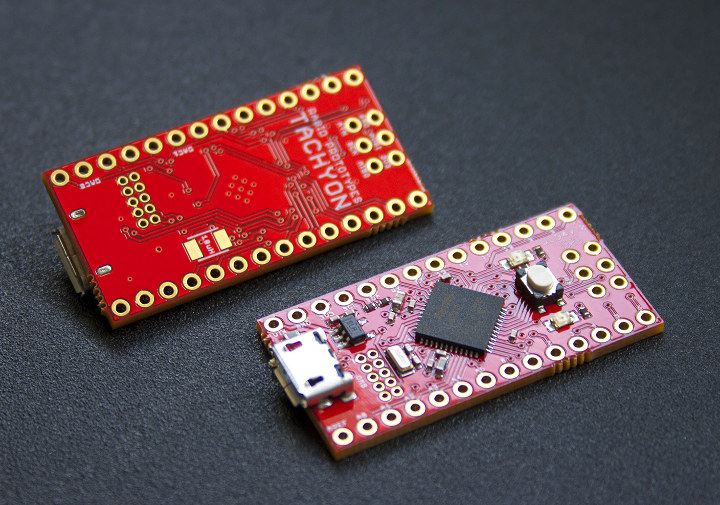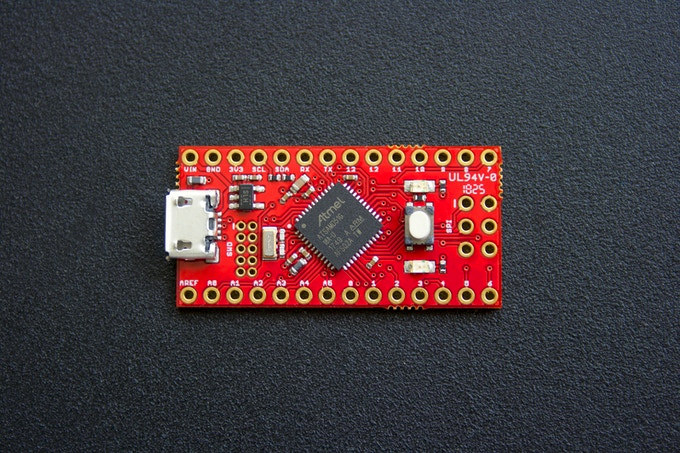Most Arm based Arduino compatible boards come with a Microchip SAMD21 Arm Cortex-M0+ MCU clocked at up to 48 MHz since this is the microcontroller found in the official Arduino Zero and MKRZero boards and comes with proper support in the Arduino IDE.
But last year, Microchip introduced SAMD5x Arm Cortex-M4 microcontroller family which offers devices that are pin-to-pin compatible with SAMA2x microcontrollers but with better performance, and more memory and storage. So the guys at Rabid Prototypes decided to make Tachyon, a tiny Arduino Zero compatible board based on SAMD51 MCU for people wanting more oomph out of their Arduino board.

Tachyon board specifications:
- MCU – Microchip ATSAMD51G18A Arm Cortex M4F @ 120 MHz with 256KB flash, 128 KB RAM
- I/Os
- Digital I/O pins – 14x w/ 12x PWM
- Analog input pins – 6x 12-bit ADC channels
- Analog output pins – 2x 10-bit DACs
- Operating voltage – 3.3V
- I/O pin limits: 3.3V, 7 mA
- Misc – Status LED, Power LED, reset switch, inductor pads to add optional 1210 10uH inductor for low power applications
- Power Supply – 3.7-5.5V input via micro USB port or Vin, 3.3V/300mA output
- Dimensions – 36 x 18mm
The board will ship with Arduino Zero bootloader, and programming can be done in the Arduino IDE, although more advanced users can also use Atmel/Microchip ICE. The design will be open source hardware, and once the boards ship, EAGLE CAD files and schematics will be released.
Tachyon board has launched on Kickstarter and with 12 days to raise, the project has raised a little over $6,000 so far surpassing its $5,000 funding target. A pledge of $20 should get you a board in October 2018. Shipping adds $5 to the total.
AFAIK, this is the first time I cover a SAMD51 Arduino board, but this got me curious to find out if there were some others, and indeed Adafruit launched their Metro M4 board using Arduino Zero/UNO form factor for $27.50 , and another company offers their Xeno Mini SAMD51 development board. I was not so luck on Aliexpress as a search for “SAMD51” did not return any results.

Jean-Luc started CNX Software in 2010 as a part-time endeavor, before quitting his job as a software engineering manager, and starting to write daily news, and reviews full time later in 2011.
Support CNX Software! Donate via cryptocurrencies, become a Patron on Patreon, or purchase goods on Amazon or Aliexpress





